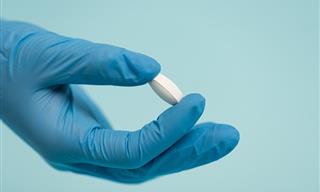
The World's Most Thorough Study on Aspartame
This study analyzed data from the Nurses' Health Study and the Health Professionals Follow-Up Study for a period of 22 years. 77,218 women and 47,810 men were included in the analysis, giving a total of 2,278,396 person-years (the number of participants in the study times the amount of time each person spends in the study). Apart from its sheer size, what makes this study superior to previous studies is the detail in which aspartame intake was assessed.
Every two years, each participant was given a detailed dietary questionnaire, and they had their diets reassessed every four years. Previous studies, which found no link between aspartame and cancer only assessed the participants' aspartame intake at one period in time, which significantly reduces the accuracy of the study.
The results of this new study showed that one 12-fl oz. can of diet soda a day leads to:
- 42% higher leukemia risk in men and women.
- 102% higher multiple myeloma risk in men only.
- 31% non-Hodgkin lymphoma risk in men only.
The reason why only men showed an increased risk for multiple myeloma and non-Hodgkin lymphoma is unknown. Diet soda is the leading dietary source of aspartame in the US. Every year, Americans consume 5,250 tons of aspartame in total, and 4,500 tons of this is from diet sodas.
Previous Research on Animals

This study shows the importance of quality research.
The majority of the past studies that have shown no link between aspartame and certain cancers have been heavily criticized for being too short and for ignoring long-term aspartame intake. This study solves both of those problems.
The fact that this study also produced a positive link between aspartame and different types of cancer is really not that surprising considering that a previous best-in-class study carried out in 2006 on 900 rats, over their entire lifespan, showed strikingly similar results; aspartame significantly increased the risk of male and female rats getting lymphomas and leukemia.
What is, perhaps, more worrying is the follow-up study, which looked into the effects of aspartame exposure on rats during their fetal stage. Increased leukemia and lymphoma risks were found and, this time, female rats had an increase in breast cancer rates. This raises a very daunting question: will future, high-quality studies uncover links between aspartame and the other cancer types it has been implicated with (brain, prostate, and breast)?
There is now more reason than ever to avoid aspartame in our diets. For those of you who think going back to sugary sodas is a "healthier" alternative, this study had a surprising finding: men who consume one or more sugary sodas a day have a 66% increase in non-Hodgkin lymphoma (which is even worse than that for diet soda). Therefore, perhaps the best soda is no soda at all.
Examples of Aspartame-Laden Products

Nowadays, aspartame can be found in over 6,000 products, more frequently in diet and sugar-free foods.
Below are some shocking examples:
- Chewing gum
- Laxatives
- Yogurt
- Coffee
- Breath mints
- Pasteurized milk
- Over-the-counter drugs
Adverse Reactions to Aspartame You May Not Be Aware Of
The US Food and Drug Administration state that aspartame is safe for consumption, despite the fact that 85% of complaints reported through their agency are adverse reactions to aspartame (including 5 deaths).
Other well-documented side effects of aspartame are:
- Headaches/migraines
- Dizziness
- Muscle spasms
- Nausea
- Heart palpitations
- Vertigo
- Breathing difficulties
- Memory loss
- Joint pains
- Insomnia
- Depression
- Slurred speech
- Anxiety or panic attacks
Due to these side effects, chronic ailments such as brain tumors, multiple sclerosis, diabetes, Alzheimer's, Parkinson's, epilepsy, and fibromyalgia can be aggravated further if you consume this artificial sweetener.
Aspartame's components (aspartic acid, methanol, and phenylalanine) are to blame. The latter has been synthetically altered so that it is able to carry a methyl group, which gives aspartame its sweet taste. This phenylalanine methyl bond allows the methyl group on the phenylalanine to break off easily and form methanol.
In fruits and vegetables, methanol is bound to a fiber called pectin and this allows it to pass safely throughout the digestive system. However, in aspartame's case, the methanol is not bound to anything that helps eliminate it from our body. Therefore, the methanol is converted by the alcohol dehydrogenase (ADH) enzyme into formaldehyde, which can wreak havoc on your body. All animals, apart from us human beings, have the natural ability to break down methanol into safe formic acid.
Source: juicing-for-health
Photos: depositphotos
 Go to BabaMail
Go to BabaMail




























